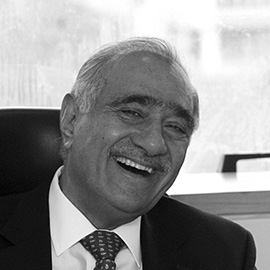Indo-Pak dialogue: Modi and Sharif need to think out of the box

The thaw
- Prime Ministers of India and Pakistan met at the sidelines of the SCO summit in Ufa earlier this month
- The two PMs agreed to resume the dialogue process between the two countries
- National Security Advisors of the two countries will meet to discuss the issue of terrorism
Hitches
- There is still significant mistrust between the two countries. Each one accuses the other of sponsoring terrorism in its territory
- When it comes to Indo-Pak dialogue, even the smallest incident can derail the process
Recommendation
- There needs to be a complete ceasefire along the Line of Control
- Modi and Sharif need to have a back-channel open, to keep the front-channel dialogue going
The Prime Ministers of India and Pakistan have met and decided to give peace a chance. Out of the three recommendations that I had made, the first and critical recommendation has, thus, already come true when the two prime ministers met on the sidelines of the SCO Summit in Ufa in Russia earlier this month.
The National Security Advisors of the two countries will meet in the coming days and discuss the critical issue of terrorism, in all its forms. This will be followed up by a meeting of the Director Generals of the Border Security Forces and after that there will be a meeting of the DGMOs of both armies.
In the joint press release after the meeting between the two PMs, in addition to these steps, a mention was made of the friendly gesture to release each other's fishermen and develop a mechanism for expanding religious tourism.
There is also talk of the re-establishment of the secret back-channel between the two governments. For me this is giving peace another chance.
This first step holds promise but I don't expect a miracle and as the old cliche goes "there is many a slip between the cup and the lip". This is especially true in the Indo-Pak context.
As has been established very fast, in our bilateral environment, unintended and unforeseen events like cross-border firing and resulting escalation of tensions on the Line of Control or the Working Boundary can derail a perfectly sound first step.
Confidence building measures
It is therefore very important to continuously set in place a number of confidence building measures (CBMs) to defuse tensions and build trust.
The first such CBM should be, to once again, declare a total ceasefire along the length of the Line of Control and the Working Boundary, along with robust steps to arrest escalation of tensions.
Pakistani establishment and people are convinced that India is supporting terrorists in FATA and Balochistan
I am confident that the National Security Advisors of both the countries with the advice of the local commanders of the deployed troops along the LoC can develop.
Ajit Doval, the Indian NSA, has some workable proposals to arrest this damaging activity, which provides no advantage to either India or Pakistan and causes loss of life and wasteful expense.
Dealing with mistrust
Today the Pakistani establishment and its people seem to be convinced that India is supporting terrorist activity both in FATA (Federally Administered Tribal Areas) and Balochistan. The Indian establishment and policy influentials believe that sub-conventional war continues to be an integral part of the Pakistan Army's security doctrine.
Unfortunately both countries have not been able to convince each other of their innocence. Something needs to done in this area of "Cold War Conflict" before we are able to make any serious and positive progressive towards normalisation of the relationship.
I offer a recommendation, which if followed in its spirit will be able to bury the "Cold War Conflict". Essentially this Cold War type activity is conducted by the security and intelligence agencies of both countries. Therefore my recommendation is to establish regular and formal communication between senior representatives of ISI and R&AW to discuss this specific issue.
These representatives should be of the seniority of Additional Secretary or Major General. Let this communication be called the "Intelligence Sub-Committee" or any other name the two countries are comfortable with. This sub-committee should form an integral part of the formal dialogue progress conducted through the foreign offices of our two countries. In essence, I am fleshing out a very old recommendation the Balusa Group (an India-Pakistan Track-II initiative) and other think tanks have been proposing
Many members of the establishment and some scholars are very suspicious of the secret back channel, but I believe that talks held outside the glare of publicity, particularly when covering intricate and emotional issues, the secret channel can prove to be a game changer.
The primary advantage of the back channel is the complete secrecy and a high degree of deniability. Through experience of the back channel, I believe both negotiating parties should be willing to show flexibility and do out of the box thinking.
Again, in the Indo-Pak context major agreements arrived at during the back channel discussions are eventually firmed up through the formal front channel of the two governments. I strongly recommend a secret back channel between the two PMs, to facilitate the open front channel.
The views expressed here are personal and do not necessarily reflect those of the organisation.
First published: 20 July 2015, 7:46 IST






![BJP's Kapil Mishra recreates Shankar Mahadevan’s ‘Breathless’ song to highlight Delhi pollution [WATCH] BJP's Kapil Mishra recreates Shankar Mahadevan’s ‘Breathless’ song to highlight Delhi pollution [WATCH]](https://images.catchnews.com/upload/2022/11/03/kapil-mishra_240884_300x172.png)

![Anupam Kher shares pictures of his toned body on 67th birthday [MUST SEE] Anupam Kher shares pictures of his toned body on 67th birthday [MUST SEE]](https://images.catchnews.com/upload/2022/03/07/Anupam_kher_231145_300x172.jpg)






